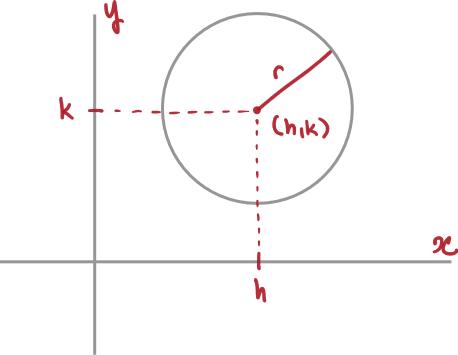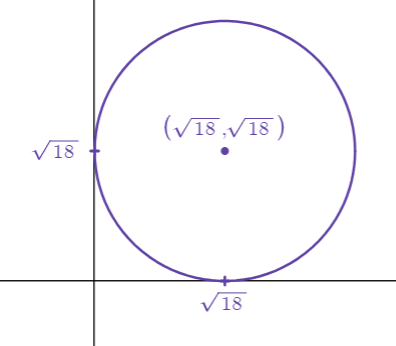A circle is a set of points in a plane that are at a fixed distance away from a chosen point, called the center of the circle. The fixed distance between the points of the circle and the center of the circle is called the radius . The diameter is twice the magnitude of the radius and represents the distance between opposing sides of the circle.
A pie-shaped portion of circle is called a sector.
(pi)
The number is a very important irrational number in mathematics that appears in formulas for the circumference and area of a circle. Like all irrational numbers, we cannot express this number in a compact decimal or fractional form. So, typically the Greek letter (pi) is used for simplicity in formulas.
is a built-in number available in all scientific and graphing calculators. For most general purposes, the approximation suffices.
The irrational number (pi)
also appears frequently when using radians to measure angles and in calculus courses.
Circumference (Perimeter) and Area
The perimeter of a circle is referred to as its circumference. The circumference of a circle with radius is given by the following formula.
Formula for the circumference of a circle
In terms of the diameter , one can also write .
The area of a circle with radius is given by the following formula.
Formula for the area of a circle
Equation in the -plane
The equation of a circle of radius and center in the -plane is given as follows.
Equation of a circle
Try graphing this yourself on Desmos, creating sliders for the variables , , and and play around by adjusting the values of the variables.
A sketch of the resulting circular graph is provided below.

Problems
Problem 1
Write the equation of the circle which has a diameter with endpoints at and .
Solution 1
Problem 2
Determine the radius and center of the circle given by
Solution 2
Adding to both sides allow us to factor into standard circle equation form.
Hence, the center of the circle is located at and the radius is .
Problem 3
Write down the equation of the circle with area and that lies tangent to the positive and axes (in other words, the circle overlaps the positive and axes each at only one point).
Solution 3
According to the area formula for a circle we have that and so The and coordinates of the circle must also be in order for the circle to lie tangent to the positive and axes.
